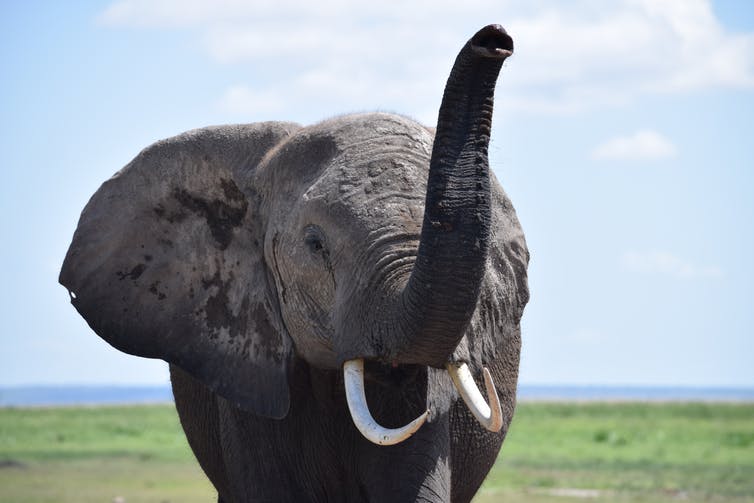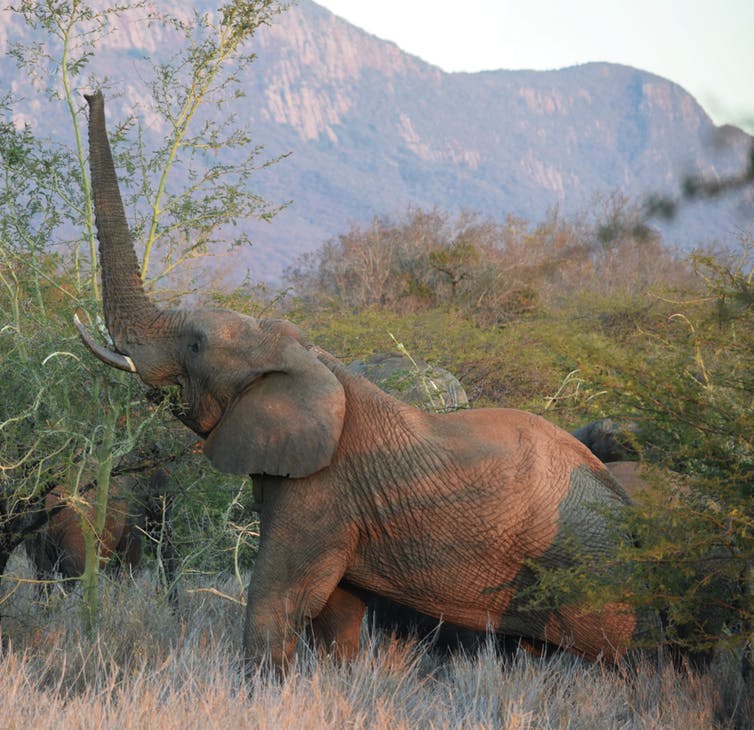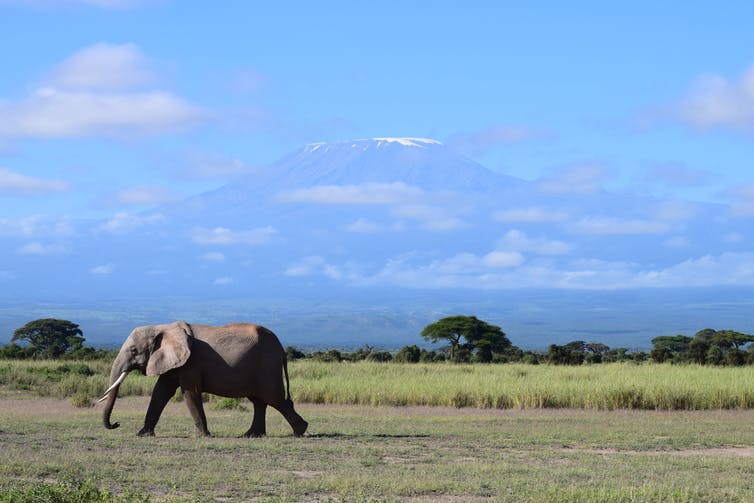Are there too many elephants in Africa? How can peaceful coexistence with human communities help in this?
- Transfer
Soon the weekend, you can relax a bit and talk on non-computer topics: climate change or animal life. For example, how elephants live in Africa ...
The elephant population in Africa has fallen sharply from about a million in 1970 to about 400,000 today . This decrease is largely due to the hunt for their ivory tusks. At its peak in 2011, poaching claimed 36,000 elephants a year, or one every 15 minutes .
Many of us are familiar with these statistics thanks to actions to stop the ivory trade. But with our attention to poaching, there is perhaps a more serious threat to African elephants. At a time when the elephant population began to decline, the human population in Africa grew rapidly. The number of people living in Africa doubled after 1982, reaching a billion in 2009, and is expected to double again by 2050.

Fig_1. Although poaching poses a huge threat to elephants, fragmentation of their habitat is less commonly discussed.
In order to feed and accommodate this growing population, the natural habitats were divided by roads and railways, and all plots were converted into farmland and settlements. As a result, African elephants were squeezed into small and even more isolated areas of land. It is very possible that the future of all African elephants will resemble what is currently observed in South Africa.
Here, elephants are mainly enclosed in small fenced reserves, separated by large landscapes in which humans dominate. Elephants cannot scatter from these reserves, but in their relative security inside them an increase in their density is visible. So much so that in sharp contrast to the description of the "extinction of elephants", to which we are accustomed, some believe that there are too many elephants in the reserves of South Africa .
An excess of elephants?
Elephants play a crucial role in African savannah ecosystems as seed dispersers. Their manure processes valuable nutrients and transfers them to trees, supporting the savannah matrix of forests and pastures and providing biodiversity.
However, over time, a high density of elephants can reduce forest cover, reducing forest and expanding grass habitats . This can threaten stray species such as black rhino and antelope, for which trees serve as food and shelter.
Managing elephants to prevent habitat changes and preserve biodiversity has a long history. Culling programs continued until the end of the 20th century and ended in the Kruger National Park only in 1994. Shooting remains the “last resort” to control elephants in South Africa, but calls have recently been made to resume shooting in Botswana .

Fig_2. Elephant eating acacia yellow acacia xanthophloea - this type of tree has a strong effect on the high density of elephants.
Shooting is now largely replaced by non-lethal approaches, including moving elephants to other areas and using contraceptives to reduce fertility.
However, all administrative intrusions cause some stress on elephants. There is always a small risk that the use of anesthetics and hormonal contraceptives can change the behavior of elephants .
The main question regarding the future of African elephants is whether we are willing to allow them to exist only where they are easy to manage. If so, then we need more research to understand the most effective and ethical ways to control elephants. If not, then the answer may be securing for elephants a larger space next to human settlements.
Save or share
It comes down to an old discussion - save land or share it. Land conservation means the separation of pristine habitats of wild animals from areas of human activity, while land sharing involves the preservation of biological diversity within an area shared by people. But what is better for nature conservation?
South Africa shows us that saving land means for elephants expensive, ongoing monitoring in densely populated nature reserves. An alternative approach to land sharing gives elephants greater access to Africa’s natural landscapes, but relies on coexistence between humans and elephants.
Land use systems outside national parks and reserves in Africa are currently unsustainable. Human-elephant interactions can threaten the lives of both parties, but strategies exist that foster coexistence.
At the heart of all of them is the understanding that there must be clear advantages for people to share their territory with elephants. Income from tourists who pay to see elephants can provide direct employment, but educational programs are also needed to help people understand the benefits that elephants bring to the entire ecosystem.

Fig_3. In Amboseli, Kenya's national park, elephants share more than 80% of their livestock with livestock and farmers.
Vital activities outside of agriculture must be encouraged to reduce the burden on habitat and wildlife, while ensuring stable incomes in a changing environment. Sound land use and planning should protect the elephant’s vital habitats.
Groups across Africa are already working on solutions that can provide this. Along with tourism, projects have appeared that generate income for elephants without harming them or the environment, such as the production of paper and gifts from elephant dung .
Save the Elephants charity tells local children about the benefits of living in harmony with elephants , and organizations like Amboseli Ecosystem Trust have begun working with conservationists, politicians and local communities to plan how to live together.
The division of land between humans and elephants will depend on the nature of cooperation between governments, conservation groups and local communities. If people want more for African elephants than keeping in heavily managed nature reserves, then everyone should be consulted. Only then can we hope for the peaceful coexistence of humans and elephants.
